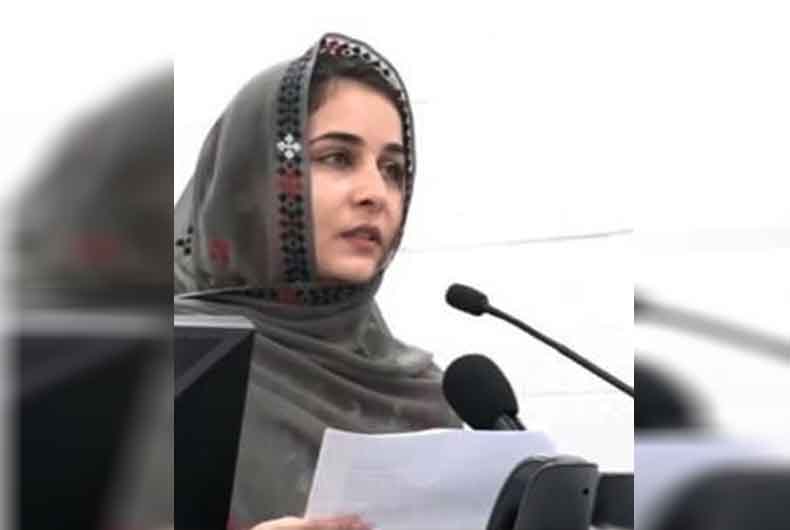Indian State Should Focus on Unconventional Methods: Jamal Nasir Baloch
Balochistan: Pakistani forces forcibly escorted Karima Baloch’s body to her hometown

Hundreds of people at Karachi airport were not allowed to pay their last respect to the slain ex-chairperson of BSO-Azad. Her funeral prayer was offered in Chakiwara area of Lyari in absentia. She will be laid to rest in Tump, Balochistan today. Pakistani forces imposed a curfew around the town.
QUETTA: The coffin of Karima Baloch was brought from Canada to Karachi on Sunday morning where hundreds of people had gathered to receive her corpse. The Pakistani forces, however, took the body into their custody and refused to hand it over to her family and supporters.
According to family sources, the body was later taken to Balochistan via a different route to her hometown Tump, Balochistan. She will be laid to rest tomorrow afternoon in Tump. People from different areas of Balochistan gather in her hometown to attend the funeral prayer.
The Pakistan military and local authorities laid a siege around Tump blocking all the entries to the town and shut down the communication system in most areas of Ketch district.
It is to be remembered that Karima Baloch disappeared from her home December last year and a day later her dead body was found n a lake in Toronto, Canada. Her family says Karima Baloch was allegedly murdered, but the Toronto police said they found no evidence of any ‘foul play’.
Her husband and brother expressed dissatisfaction about the police initial report and demanded a thorough investigation. Karima’s dead body was finally released from Canadian police custody and flown to Karachi on Sunday morning. The Canadian authorities have not made public any further details about her disappearance and subsequent death.
On Sunday her corpse was taken to district Kech by road escorted by several military vehicles and more troops joined them after they crossed Vindar Balochistan.
Despite heavy military presence and blockage by Pakistani forces cluster of Karima Baloch supporters including women and children gathered on roadsides and pay their last respect to her as the ambulance carrying her dead body passed through.
Mobile service of entire Kech region has reportedly been disconnected and Tump town has been put under a military siege.
The dead body of Banuk Karima Baloch was in the custody of Pakistan forces at the time of filing this report and according to Sameer Mehrab, brother of Karima Baloch, he has no contact with his family due communication system blackout. He said he was not aware of his family’s whereabouts.
CALL FOR SHUTTER DOWN STRIKE
The Baloch Solidarity Committee (BSC) in a statement called for a shutter down strike today January 25, across Balochistan and appealed the business community and transport administration to support their protest by voluntarily shutting their businesses.
The spokesperson of the BSC said that as soon as the dead body Karima Baloch reached Karachi on the morning of January 24, a large contingent of forces took the body into their custody and put it in an ambulance without the consent of the family members
“The state did not allow Banuk Karima Baloch’s funeral prayers and last rites to be performed in Karachi in violation of all human values, while the general public, who had been waiting for hours, were not given a chance to pay their last respects,” the statement read.
The BSC statement also confirmed all previous report that the Pakistani state forces shut down the communication networks in all areas of Kech Balochistan.
The BSC also said that general public who had gathered at various places along the route for last a glimpse of Karima Baloch were forcibly removed and a curfew was imposed in Tump the hometown of Karima Baloch, and all routes to Tump were blocked.
According to BSC statement, Banuk Karima Baloch has the status of a national leader and she is viewed with great devotion in Balochistan. Preventing the general public from paying their last respects to Karima and not allowing funeral prayers is tantamount to violating all human, religious and national values.









